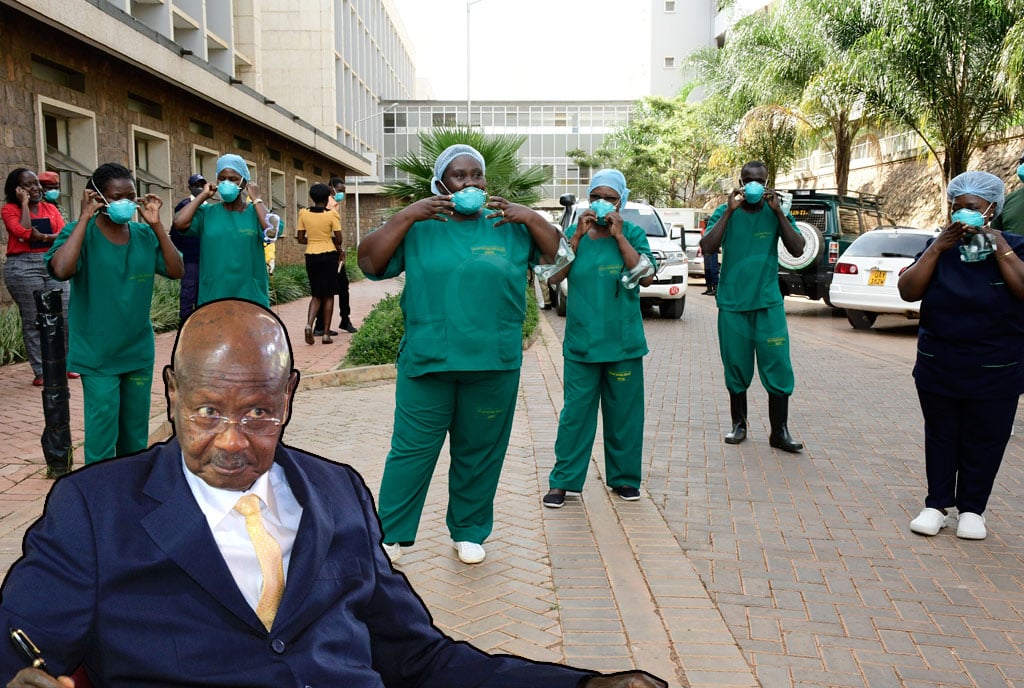Prime
World Bank decision may be blessing in disguise

Author: Francis Mwijukye. PHOTO/FILE/COURTESY
What you need to know:
- The government needs to rethink and to re-adjust its spending if we are to find money to cater for the gaps created by this withdrawal.
Last week, the World Bank announced a withdrawal of support to the Government of Uganda following the passing of the anti-homosexuality law early this year. This withdrawal will affect projects worth Shs6.7 trillion.
The recent report by the Inspector General of Government indicated that Uganda loses about Shs9 trillion to corruption every year. That is about a quarter of our total budget, including debt payment.
As leaders and government, we need to find ways of responding to this situation if our economy is to remain standing. The government needs to rethink and to re-adjust its spending if we are to find money to cater for the gaps created by this withdrawal.
As the saying goes that one needs to cut his coat according to his cloth, it is high time we started spending according to our capacity. The Bible is clear that some problems cannot be removed by a prayer but also by fasting. Therefore, as a country, we need to fast and our government should reduce the appetite for spending.
This is the time to reduce the number of presidential advisors and envoys, who are more than 150 in number so that we save resources to fix our health facilities and schools. Last year, the President appointed Dr Nassan Mutembeya as a special advisor-in-charge of Ankole cows and he is paid a Shs15 million salary. Other presidential advisers are paid between Shs 2.2 million and Shs7 million. But can our economy support such expenditures?
Each advisor has a vehicle, driver, body guards, salary, allowances, office etc and a budget yet many of them spend years without advising the President. The President can get advice from the religious leaders, elders, retired civil servants or even his own ministers on any issue without making any extra payment.
This is the time to reduce ministers from the current 81 to 21 as per the Constitution. How can we have a minister for Northern Uganda yet we have ministers from that region? How can we have a minister for Luweero, Rwenzori or Karamoja Affairs when we have ministers from those places? Are there issues in those regions that cannot be tabled in Cabinet by the ministers from those areas?
Why should we have two ministers for Kampala Capital City Authority yet we have a minister for Urban Planning, a lord mayor and his council? How can we have a minister of East Africa, Regional Cooperation, International Relations and Foreign affairs? How can we have a minister for Internal Affairs, Defence, Veteran Affairs and Security all doing the same thing? How can we have five ministers under the Ministry of Gender, Labour and Social Development?
Why should we have a Deputy Prime Minister without portfolio, a minister for General Duties, and another minister for General Duties (Finance)? The money we spend on the ministers’ lead cars, fuel, bodyguards, allowances etc can be used to fix our roads and electricity.
This is the time to reduce the number of resident district commissioners (RDCs); we currently have close to 300 RDCs and resident city commissioners. Each of these drives a double cabin worth Shs250 million, is paid a monthly salary of Shs2 million on top of allowances and other office expenses. The RDCs are heads of security in the district but their work can be done by district/ division police commanders and district internal security officers. RDCs claim to monitor government programmes yet district chairpersons and the district councils can do this.
If we remove RDCs, we can get money for mechanisation of agriculture and industrialisation.
We currently have more than 150 agencies and many do the same work. The money spent on their operations, salaries can be channeled through wealth creation programmes.
Therefore, withdrawal of funding by the World Bank should teach the government a lesson to invest in economically viable areas and also to help us all behave better.
Francis Mwijukye is the Member of Parliament for Buhweju County.




